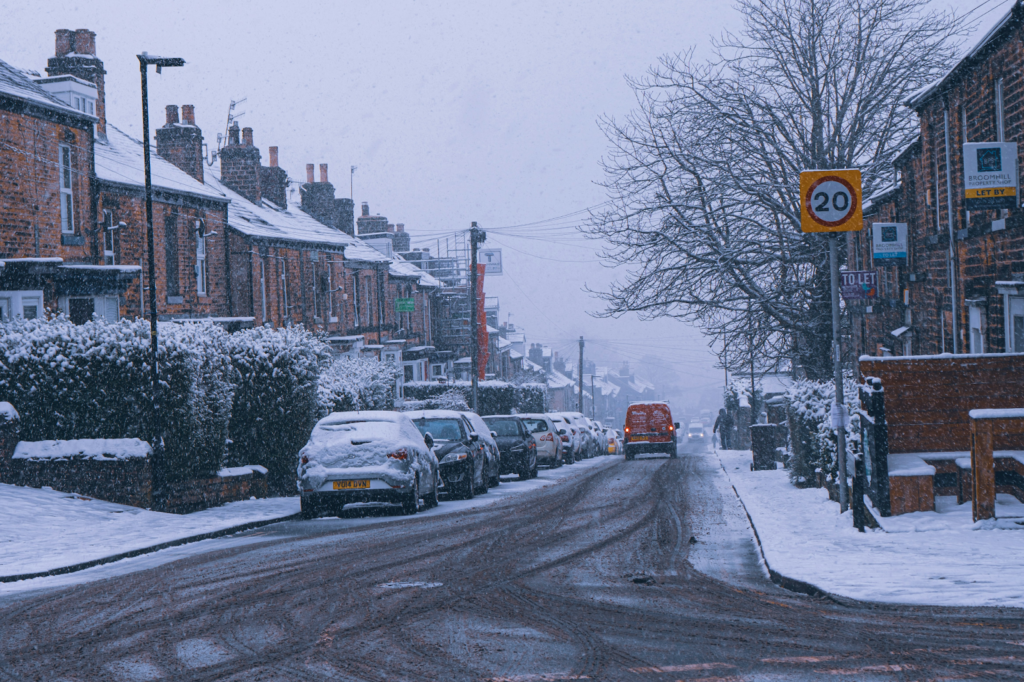How driving in the snow could land you 7 fines costing up to £24,000

With the UK set to experience snow next week, the sudden change in weather can result in extremely hazardous driving conditions.
While drivers should only drive if absolutely essential, Keith Hawes at Nationwide Vehicle Contracts has revealed Brits should be aware of a number of laws that could cost them thousands when driving in the snow, to help drivers avoid getting caught out with unforeseen costs this winter.
7 laws you need to know before driving in the snow
- Ensure there is no snow on number plates and car lights – £1,000
It sounds simple, but taking two minutes to make sure your number plate and car lights are completely visible before you set off could save you £1,000 in fines.
2. Ensure your tyres have a tread depth of at least 1.6mm, but aim for 3mm – £10,000
To avoid a hefty fine of up to £10,000 (£2,500 per tyre), make sure each tyre has a tread depth of at least 1.6mm, the legal limit for cars in the UK. However, when driving in the snow and ice, lower tread on tyres can become dangerous making it even more difficult to come to a stop. With this in mind, aim for a tyre depth of 3mm when faced with snowy conditions.
3. Wear appropriate footwear – £5,000
Wearing inadequate footwear and clothing that ‘prevent you using the controls in the correct manner’, is not allowed according to the Highway Code and can result in a fine. Be sure to wear practical footwear to ensure you have full control of the pedals.
4. Demist all windows – £1,000
When driving, you must have full visibility of all windows. Take the time each morning to make sure all snow and ice is removed from the windows, if not it could result in a £1,000 fine.
5. Snow on roof – £2,500
While many people remember to clear car windows, the roof is sometimes overlooked. However, if the snow on your roof falls onto your window screen while driving or interrupts the path of another car, drivers could face fines for ‘using a motor vehicle in a dangerous condition’ or ‘driving without due consideration’ so be sure to spare two minutes to clear the roof before setting off. .
6. Careless driving – £5,000
Driving in icy and snowy conditions means you have to be more careful to stay safe. However, if you’re caught driving carelessly, a fine will be handed out. Be sure to accelerate and brake softly and slowly, as well as keeping a safe distance from other cars.
7. Leaving the car running to defrost – £40
The Highway Code states that ‘you must not leave a vehicle’s engine running unnecessarily while that vehicle is stationary on a public road.’ Keeping an engine running can also have environmental impacts so it’s always best practice to turn the car off.





